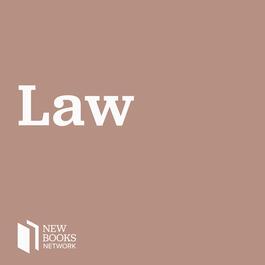
New Books in Law
Interviews with Scholars of the Law about their New Books Support our show by becoming a premium member! https://newbooksnetwork.supportingcast.fm/law
Show episodes

Michael Stauch, "Wildcat of the Streets: Detroit in the Age of Community Policing" (U Pennsylvania Press, 2025)
The criminalization of Black youth was central to policing in urban America during the civil rights era and continued in Detroit even after the rise of Black political control in the 1970s. Wildcat of the Streets documents how the “community policing” approach of Mayor Coleman Young (1974–1993)—including neighborhood p

Robert Hutchinson, "After Nuremberg: American Clemency for Nazi War Criminals" (Yale UP, 2022)
Robert Hutchinson's After Nuremberg: American Clemency for Nazi War Criminals (Yale UP, 2022) is about the fleeting nature of American punishment for German war criminals convicted at the twelve Nuremberg trials of 1946–1949. Because of repeated American grants of clemency and parole, ninety-seven of the 142 Germans co

Christopher T. Fleming, "Equity and Trusts in Sanskrit Jurisprudence" (British Academy, 2025)
This monograph outlines the core principles of equity and trusts in Sanskrit jurisprudence (Dharmaśāstra) and traces their application in the practical legal administration of religious and charitable endowments throughout Indian history. Dharmaśāstra describes phenomena that, in Anglo-American jurisprudence, are assoc

Carol Nackenoff and Julie Novkov, "American by Birth: Wong Kim Ark and the Battle for Citizenship" (UP of Kansas, 2021)
All nations make rules -- through their constitutions, legislatures, bureaucratic practices – about who counts as a citizen. American by Birth examines the role of the Supreme Court – particularly a ruling from 1898 that is still precedent today. Wong Kim Ark v. United States interpreted the language of the 14th Amendm

Ben Westhoff, "Fentanyl, Inc.: How Rogue Chemists Are Creating the Deadliest Wave of the Opioid Epidemic" (Grove Press, 2019)
Ben Westhoff is an award-winning investigative journalist whose best-selling 2019 book Fentanyl, Inc.: How Rogue Chemists Are Creating the Deadliest Wave of the Opioid Epidemic (Grove Press, 2019), was one of the first to take fentanyl seriously as both a social phenomenon and a national threat. Since its release, West
Indonesia's judicial system has long been described as dysfunctional. Many of its problems developed out of decades of authoritarian rule, which began in the last few years of the reign of Indonesia's first president, Soekarno. By the time President Soeharto's regime fell in 1998, the judiciary had virtually collapsed.

